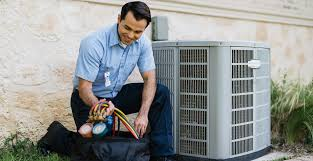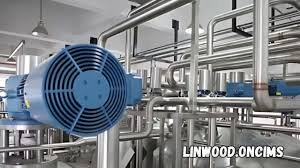Introduction
Keeping your indoor environment cool, healthy, and energy-efficient depends heavily on the quality of local air conditioning service you choose. This article explains what local AC services typically include, why hiring a nearby, reputable technician matters, and how regular maintenance can extend system life while lowering energy bills. Written with Google EEAT principles in mind, the content emphasizes expertise (what qualified technicians do), experience (typical on-the-job scenarios and results), authority (industry best practices and certifications to look for), and trustworthiness (clear safety and warranty considerations). Whether you’re a homeowner replacing an aging unit, a renter needing a reliable tune-up, or a small business manager planning seasonal maintenance, this guide is designed to be practical and actionable. Read through the sections below for focused advice on evaluating providers, understanding common services, and following maintenance routines that protect your investment and indoor comfort.
Why choose a local air conditioning service?
Choosing a local air conditioning service brings practical advantages that go beyond convenience. Local technicians understand regional climate patterns and common issues specific to your area’s humidity and temperature swings — knowledge that improves troubleshooting and long-term recommendations. Proximity usually means faster response times for emergency repairs and lower travel charges, which can reduce overall service costs. Local companies are commonly more invested in reputation management within their communities: they rely on word-of-mouth, repeat business, and local reviews, so their service, pricing transparency, and follow-up tend to be stronger. Additionally, local providers are more likely to be familiar with municipal codes, permit requirements, and utility rebate programs that can affect installations or replacements. When selecting a local service, check for a physical address, local customer testimonials, and active community engagement to verify they’re genuinely rooted in the area these signs often translate into better accountability and a higher likelihood they’ll stand behind warranties and aftercare.
Comprehensive services offered by professional local AC providers
A full-service local AC company provides a spectrum of offerings that cover installation, repair, maintenance, and system optimization. Installation services include accurate load calculations and correct sizing so the new unit performs efficiently and reliably; a proper installation also involves ductwork checks, refrigerant charge verification, and electrical safety inspections. Repair services address common mechanical and electrical failures failed compressors, refrigerant leaks, thermostat or control issues, and airflow problems caused by blocked condensate drains or dirty coils. Preventive maintenance packages typically cover filter replacement, coil cleaning, lubrication of moving parts, safety checks, and performance testing to ensure peak efficiency and reduce the risk of breakdowns. Many professionals also offer energy-efficiency upgrades like programmable thermostats, zoning solutions, and recommendations for better insulation or sealing. Reputable providers will supply written estimates, transparent parts/labor pricing, manufacturer-authorized replacement parts, and clear warranty terms to protect you after the job is done.
How to choose a reliable local AC technician
Selecting a reliable technician involves more than price comparison; it’s about verifying credentials, track record, and communication. Start by checking licenses and certifications in many regions, HVAC technicians should hold trade licenses and certifications like EPA Section 608 for refrigerant handling; technicians with NATE (North American Technician Excellence) certifications indicate advanced training and proven competence. Read recent customer reviews on multiple platforms to spot patterns: punctuality, cleanliness during service visits, clarity of explanations, and whether the company honored warranties. Ask for proof of insurance (liability and worker’s comp) and confirm that estimates are written and itemized so you know what you’re paying for. Inquire about parts warranties and service guarantees reliable companies typically offer parts and labor warranties and will explain maintenance plans that save money over time. Finally, prioritize technicians who perform a thorough diagnostic before recommending expensive replacements; a trustworthy provider will present repair options clearly, explain long-term cost implications, and never pressure you into unnecessary upgrades.
Maintenance tips to maximize system life and efficiency
Proactive maintenance keeps an AC system running smoothly and helps prevent costly failures. Simple homeowner tasks can make a measurable difference: change or clean filters monthly during heavy use, keep outdoor condenser units free of debris and vegetation (maintain at least 24 inches of clearance), and ensure vents and registers are unobstructed. Schedule professional preventive maintenance at least once per year ideally before peak cooling season so technicians can inspect refrigerant levels, test electrical connections, check thermostat calibration, clean coils and condensate drains, and measure airflow. Keep records of service visits, invoices, and parts replaced; a documented maintenance history adds resale value and helps technicians diagnose future issues faster. For energy savings, consider programmable or smart thermostats and look for opportunities to improve home insulation or duct sealing. Proper maintenance balances immediate comfort with long-term system reliability and efficiency small, regular investments today reduce the chance of sudden breakdowns and extend the working life of major components.
Conclusion
A dependable local air conditioning service is an investment in comfort, safety, and long-term savings. By prioritizing certified, insured technicians with strong local reputations and transparent warranties, you secure faster response times, tailored expertise, and better accountability. Regular maintenance both DIY basics and professional tune-ups keeps systems efficient, reduces energy bills, and prevents disruptive failures. Whether you need a one-time repair, a seasonal inspection, or a full system replacement, use the guidance above to vet providers, understand services, and adopt practical habits that extend the life of your equipment. Staying proactive and choosing the right local partner will keep your indoor environment comfortable and your HVAC costs predictable.
Frequently Asked Questions (FAQs)
Q1: How often should I schedule professional AC maintenance?
A1: Schedule professional maintenance at least once per year ideally before the cooling season begins. If you have heavy use, pets, or poor air quality, twice-yearly checks (cooling and heating seasons) are beneficial.
Q2: What certifications or licenses should I look for in an AC technician?
A2: Look for trade licensing required by your jurisdiction, EPA Section 608 certification for refrigerant handling, and industry certifications like NATE. Also verify company insurance and any manufacturer authorizations for warranty work.
Q3: Can I repair my AC myself to save money?
A3: Simple tasks like replacing filters or clearing debris around the condenser are fine for homeowners. Avoid DIY repairs involving refrigerant, electrical components, or compressor work these require licensed technicians to ensure safety and maintain warranties.
Q4: How do I know if my AC should be repaired or replaced?
A4: Consider replacement if repair costs exceed 50% of a new system’s value, your unit is older than 10–15 years, or frequent failures occur. A qualified technician can provide a cost-benefit analysis factoring efficiency, expected lifespan, and energy savings.









